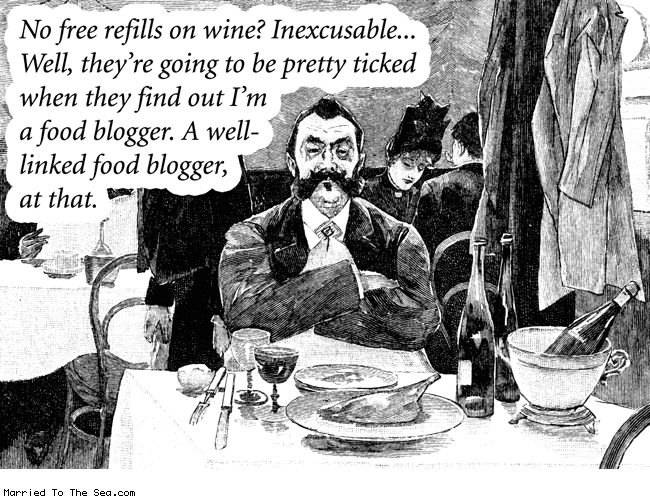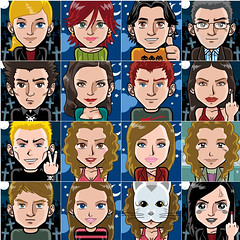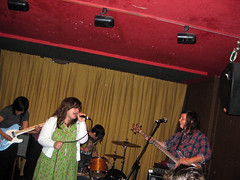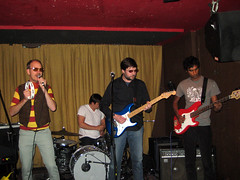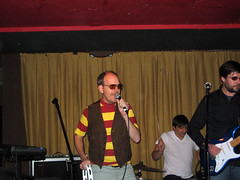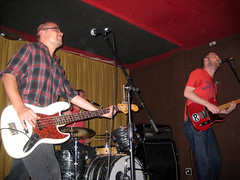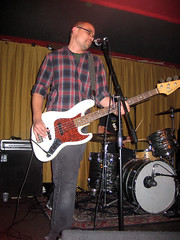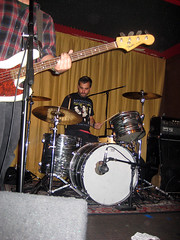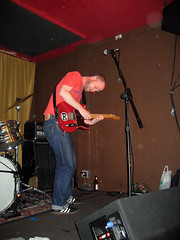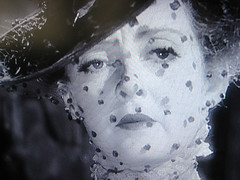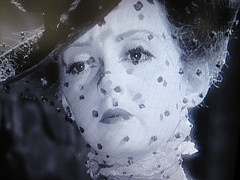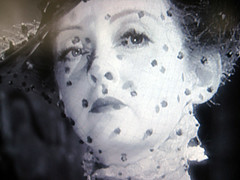Ladies, Women & Grrrls
This weekend I was indulging in an occasional guilty pleasure: reading trashy rock 'n' roll biographies. I had read the Neal Karlen book about Babes in Toyland years ago when I checked it out of the library in my temporary home of Lincoln, NE. But I felt like reading it again and for $5.00 at Aardvark Books how could I resist snapping it up and reading through it in one sitting on Saturday? The book is even worse than I remember in terms of writing quality and dubious facts. But it reminded me how much I love the Babes and, naturally, sent me on a nostalgic trip through their sonic catalog that I've owned for years.
It also got me thinking: where have all the bands with women who play actual instruments gone? I know there are bands with more underground/indie cache like Erase Errata, T.I.T.S or The Bruises and I think that's awesome to have these folks existing in that musical world. But there was actually a time, believe it or not, where bands containing female musicians actually had mainstream exposure and a relative measure of success. And while I have no desire to insist that mainstream exposure is necessary for a band to be relevant, it's vexing to see the current state of women represented in the mainstream when you think about how the mainstream is the bulk of what most people in this world are exposed to. The fact that there was a time where people who'd never seek such sounds out in the underground (or just plain didn't know they existed) were exposed to bands and musicians ranging from Babes in Toyland to Belly to Juliana Hatfield, from Hole to The Breeders to early-career Liz Phair seems almost mythological, like a fantasy of a more progressive time that one would read about in a novel set in the future; despite the fact that it was often peppered with horrible buzzwords like "foxcore" and grown women were saddled with the often insulting/diminishing "girl band" moniker. Hell, even the amount of mainstream attention the stridently anti-mainstream Riot Grrrl movement received meant that people who weren't a part of that insular, underground world knew of the existence of Bikini Kill or Bratmobile or Heavens to Betsy. But what about now?
I have always loathed the way music journalists and critics compartmentalize and essentialize female musicians with the whole Women in Rock label/line of questioning. Much like the 2/3 gay band I am in, most women who have had such a title foisted on them want to be recognized as musicians first and foremost, not just a gender that is constantly met with shock and awe at their ability to create music and play instruments despite their lack of male chromosomes. But I think it's safe to say that a lot of those same women do see the value derived in other women, young or old, (and men too, for that matter) gaining inspiration from seeing them do their musical thing. These days it seems like the lion's share of women garnering attention in the pop music world are singers and nothing more. And often times "singer" is stretched to the utmost limits of its definition. Even someone like Feist, a singer-songwriter with a fair amount of popular attention, is more known for her videos where she dances around in American Apparel outfits than her actual guitar playing or songwriting. And while it's not her job to present herself as one thing or another, it still feels like a bit of a nod to the depressing state of how women are currently represented in the music industry. Former punkers-turned-pop-sweethearts, (and, some said, sellouts) The Go-Go's would seem downright alien in the world of popular music these days. I feel like if they appeared here and now for the firs time they'd be relegated to small-venue shows and minor indie fame status.
The break-up of Sleater-Kinney in 2006 and the subsequent dropping-of-the-radar of The Donnas (never a fave, but still) seems to have been at least a temporary nail in the coffin of female rockers with any kind of mass attention. The world of music is one full of swinging pendulums and sea changes so it's not like this is necessarily a permanent state. But when the pop music world is so full of Amy and Duffy and Rihanna and The Pussycat Dolls - despite the range of talents or abilities represented by that pop chart sampling - it feels like things are dismal when it comes to hoping for a world where the people actually know of women who can shred on guitar or beat the hell out of a drum kit or, hell, even write a weird, crossover, guitar-pop hit like "Feed the Tree", a song that would sound so totally out of place on the radio today. One can only hope that a young woman who has managed to discover the twisted nursery rhyme poetry of Kat Bjelland or is inspired by the drum-pummeling majesty of Janet Weiss is somewhere unconsciously (or consciously) planning how to show the world - men, women, boys, girls - that women can be much more than singing marionettes in the ever-mind-numbing landscape of pop music.
